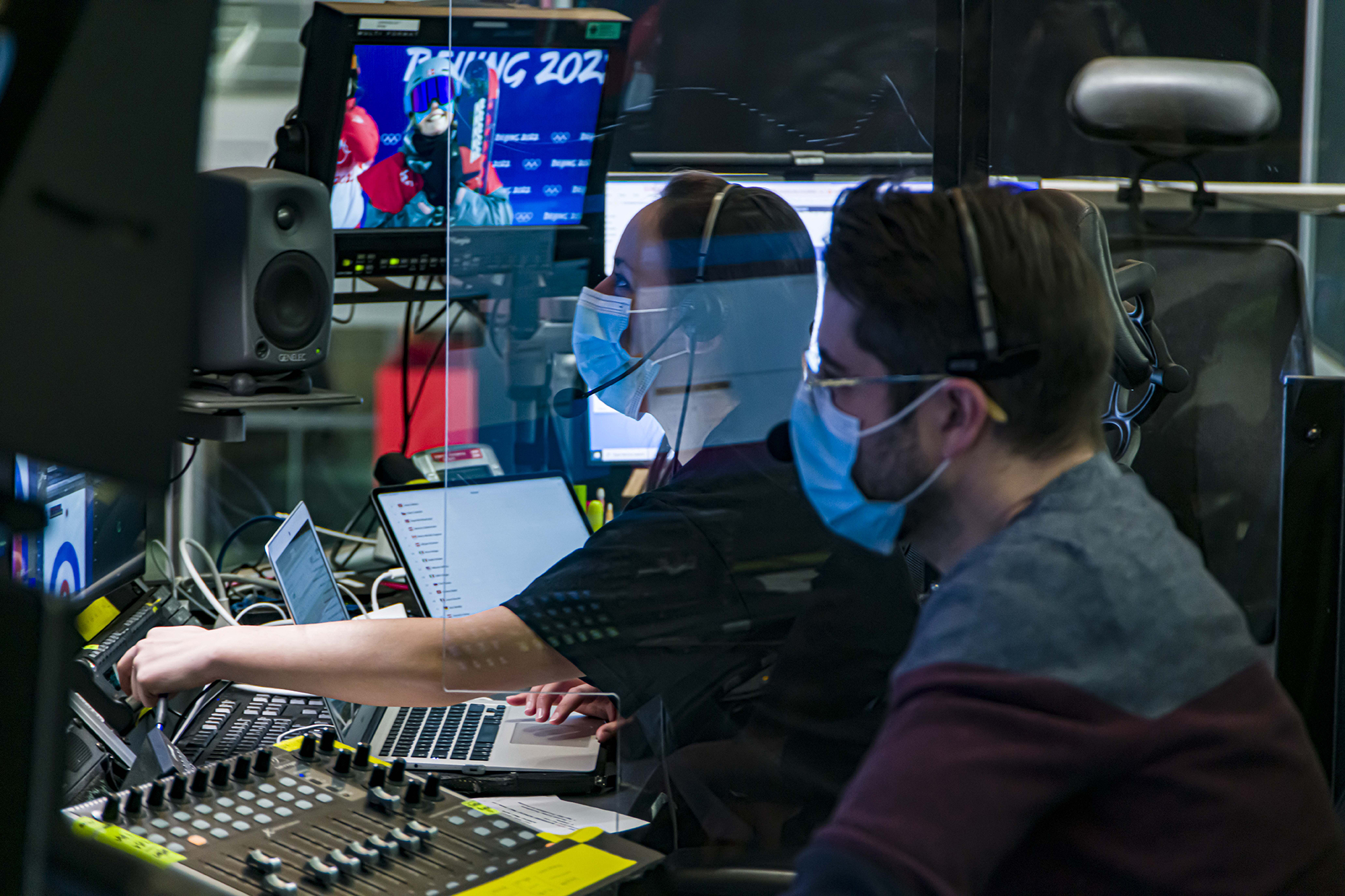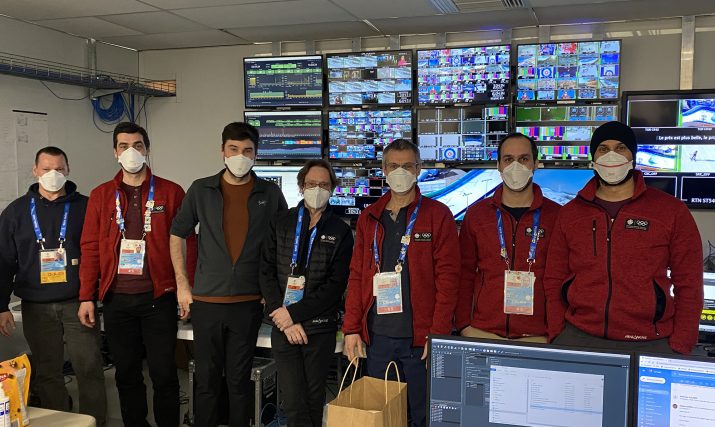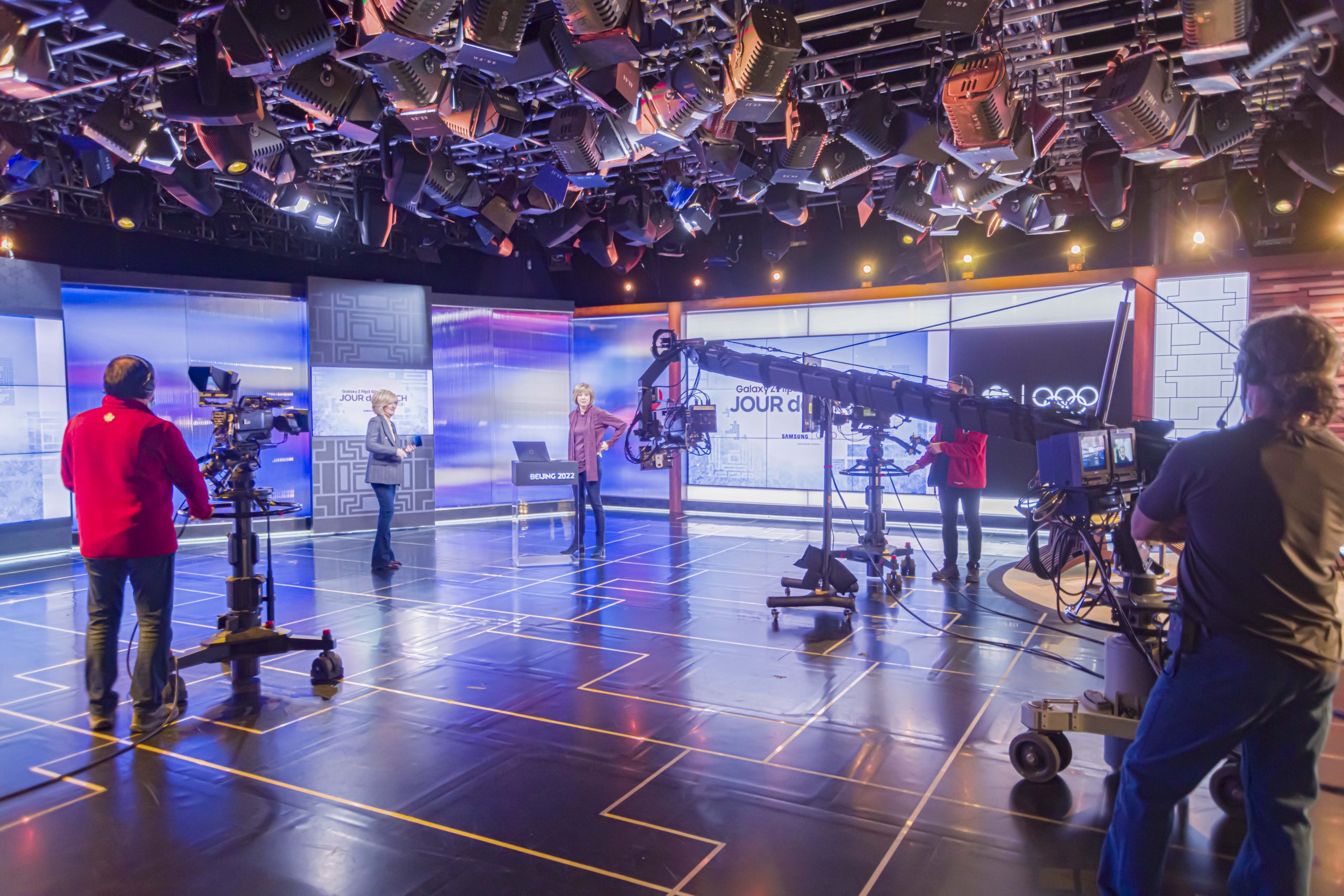Beijing 2022: CBC/Radio Canada Leverage Toronto, Montreal Facilities To Bring the Games to Fans
As one of the world’s winter-sports centers, Canada is always amped up for the Winter Olympics. And, despite some unique circumstances and unprecedented challenges in Beijing, CBC/Radio Canada is once again pulling out all the stops to bring the 2022 Winter Games home to fans.

CBC is basing its main coverage on OBS signals, adding unilateral cameras for Canadian-favorite events.
By the end of the Games on Sunday, CBC/Radio Canada — along with sublicensees/broadcast partners TSN and Sportsnet — will have delivered more than 1,200 hours of broadcast coverage, with an additional 2,500 hours of live sports on CBC Gem, cbc.ca/beijing2022, and the CBC Sports app.
Francois Messier, directeur général, productions and sports, and chef de mission, Tokyo 2020 and Beijing 2022, CBC/Radio Canada, is among the scaled-down crew in Beijing for the Games. He says the onsite footprint at the IBC and personnel in Beijing have been reduced by roughly 20% from the postponed Tokyo Games and 60% compared with PyeongChang 2018. As usual, the Canadian broadcasters are relying heavily on feeds provided by OBS but have also added some of their own cameras in events with top Canadian athletes.
“Our approach,” says Messier, “is to base our main coverage on OBS signals, and we are adding some [unilateral cameras] for important sports where we want to have iso shots of our Canadian athletes. We also have a strong presence in the mixed zones to gather athletes’ reactions and interviews after their performances.”
In Beijing, CBC has a presence at both IBC locations — in the city and at the mountain cluster — along with two green-screen interview setups and a handful of interview setups in the Olympic Village with Canada’s National Olympic Committee.
Although the majority of the event commentary is being done remotely from Canada, CBC does have news crews for both the English and French services onsite in Beijing. However, the ENG crews’ activity is more limited than usual in order to stay within the COVID-mandated closed loop.
Signals are sent from Beijing to control rooms in Toronto for CBC and in Montreal for Radio Canada. The primary studios are also in Toronto and Montreal, where the broadcasters have their respective teams producing for their own channels, as well as providing content to sublicensees Sportsnet and TSN/RDS.
For transmission, the Canadians have secured a redundant circuit from Beijing to Tokyo and two 10-Gbps pipes: one going through Los Angeles and Washington to Toronto, the other through Seattle to Montreal. CBC/Radio Canada also has two 10-Gbps circuits between Toronto and Montreal.

Using two green-screen setups in Beijing, CBC is able to “transport” athletes into studios in Canada for live “in-person” interviews.
With the tight turnaround from the Tokyo Games, most of the equipment from last summer was put in containers and shipped directly from Japan to China immediately after the 2020 Summer Games. CBC had a team in Beijing in November/December to start installation of equipment and set up workspaces. Some equipment had to be sent back to Canada for reconfigurations since the coverage plan at some venues had changed from the original setup.
In a change from Tokyo, where Olympic Venue audio used Yamaha LS9, the Beijing Games are using Lawo Powercore RP with a VPro8 remote mixer using SMPTE ST 2110-30 — a notable addition, according to Messier. He also notes that his team is using Grass Valley Alchemist Live for SDI-to-IP and frame-rate conversion.

2022 Beijing Olympic Games – NMRC – Plateau W (WEB). Coverage of the games from CBC Montreal on 15 Nov 2022.
The greatest challenges for this year’s operation, he adds, are the tight timelines between the Tokyo and Beijing Games, the challenge of physically getting to Beijing (especially delivery, transport, and access), strict COVID protocols on entering China, and the closed-loop conditions now in place (with no way to access stores and local providers).
Despite these hurdles, Messier says, CBC/Radio Canada’s coverage has been able to live up to the same high bar set at previous Games. “We have been able to deliver our mandate with quality and are on schedule with no major hiccups so far.”


